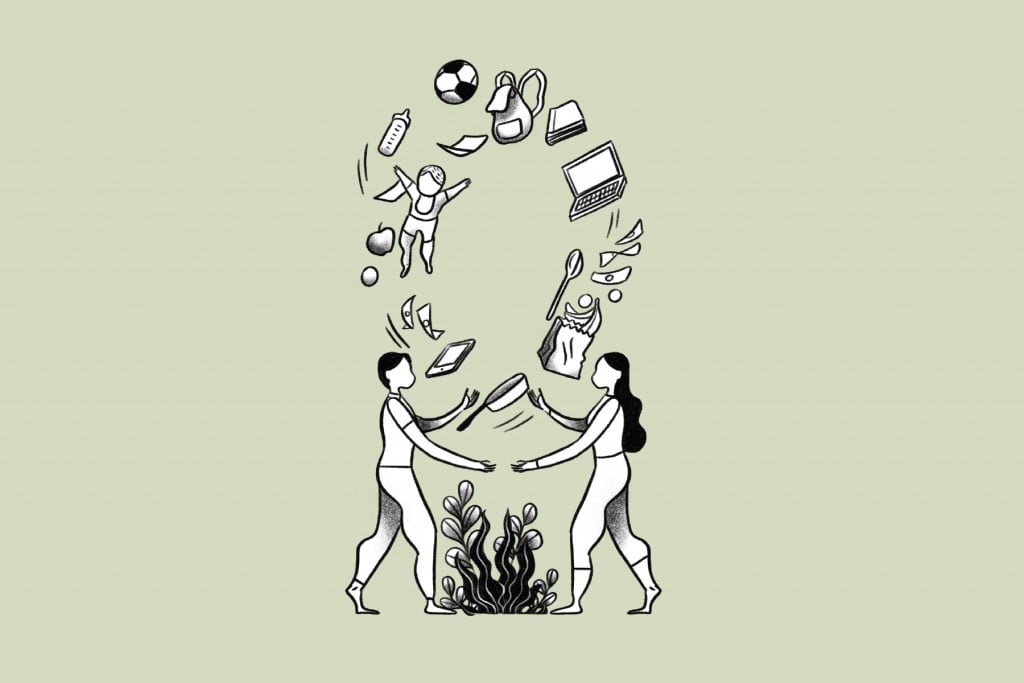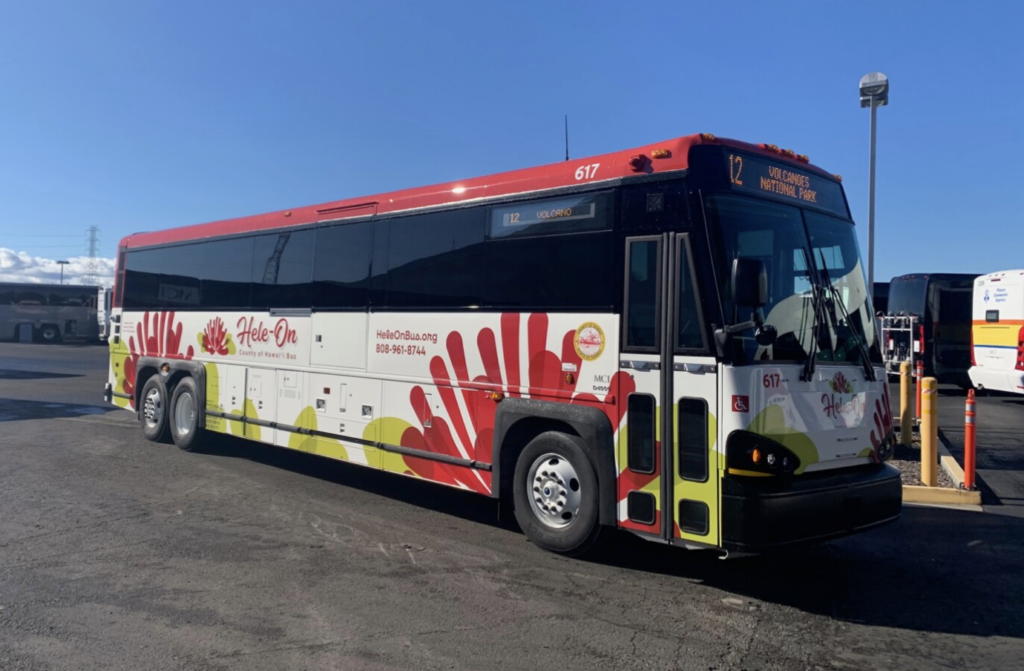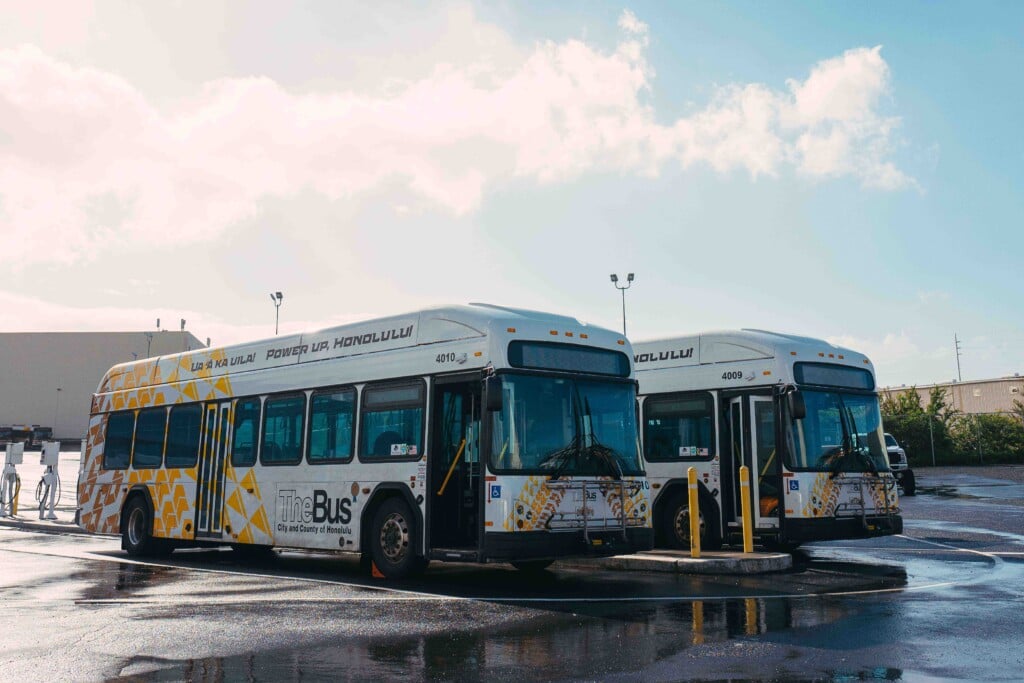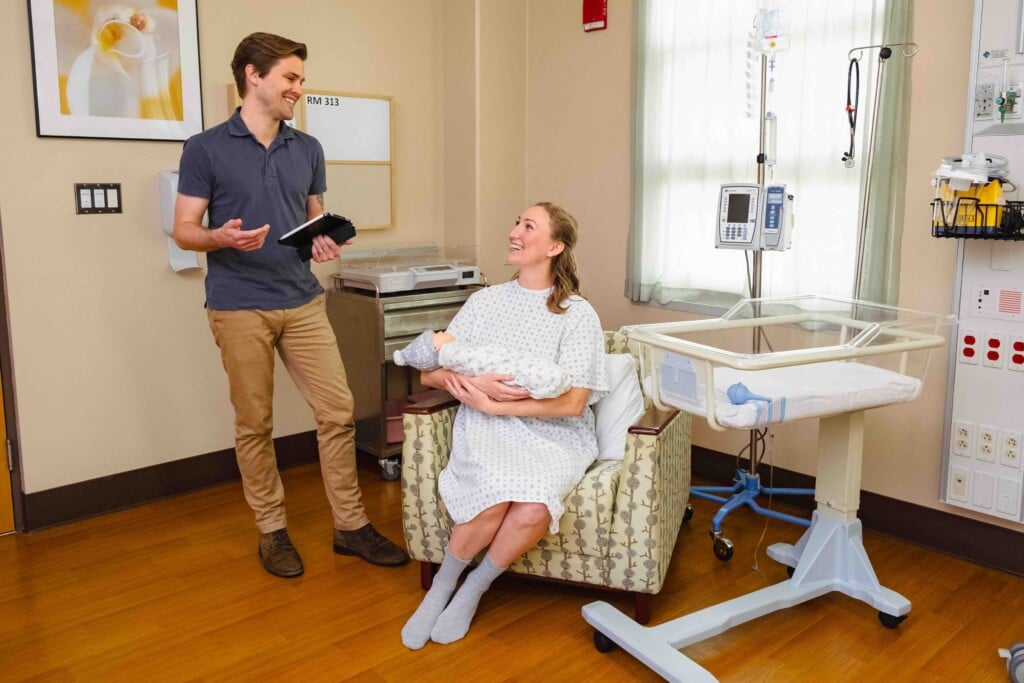Grandparents Are Great, But They Can’t Solve All of Hawai‘i’s Child Care Needs
Hawai‘i’s high cost of living often drives the need for grandparent-provided child care. But many grandparents can’t provide care because they are still working or live on the Mainland. Here’s what else is needed.

Some working parents never have to ask their parents or in-laws to watch their keiki while they work. Instead, those grandparents just assume they’re needed and are more than happy to help care for the new generation.
“I think it’s always kind of been that way in Hawai‘i,” says Craig Gima, AARP Hawai‘i communications director, of grandparents providing some type of child care for their grandchildren. AARP is a nonprofit that focuses on issues affecting individuals age 50 and older.
Caring for family members is part of Hawai‘i’s various cultures. Plus, one of the joys of being a grandparent is spending time with grandchildren. But there are also economic reasons why grandparents are often part of families’ safety nets, such as Hawai‘i’s high cost of living, housing and child care, all of which contribute to the state’s large percentage of multigenerational households and the need for both parents to have jobs. And often the high cost of living means local grandparents have to keep working, even past the traditional retirement age of 65.
Some argue that Hawai‘i’s dependence on grandparent-provided child care is the result of inadequate support for working families. About 42% of Hawai‘i’s households struggle to make ends meet. At the same time, the state has yet to create a paid family leave program, raise the minimum wage to a livable level, sufficiently expand preschools and make child care more affordable.
“I think the grandparents helping grandchildren is more common in Hawai‘i than other states, but it doesn’t mean that the policies for working families are not important,” says Hua Zan, a UH Center on the Family associate researcher who studies family economic well-being, family policies and caregiving. “I think it’s actually more important in the sense that grandparents often take care of grandchildren for economic reasons.”
A Kūpuna Edge
Gima says it’s common for grandparents to help care for grandchildren in Hawai‘i. Part of that might be due to the state’s large percentage of immigrants and multigenerational households.
Many parents, he says, enjoyed growing up in the same home as their grandparents and want the same experience for their keiki. And it’s common to hear stories of kama‘aina working on the Mainland who return to the Islands so their children can be close to their families.
Deborah Zysman, executive director of the Hawai‘i Children’s Action Network, argues regular, full-time grandparent-provided child care is a model of the past – from when women were at home and when people didn’t have to continue working into their 60s and 70s. Today, the Honolulu-based nonprofit tends to hear from families that grandparents help in bits and pieces, not all the time.
“They assist with things like picking up kids on occasion, but in terms of are they the ones watching children everyday while parents are at work? That model for most families is no more. … But part of the problem we have is people think it still is. People think, ‘Oh grandparents are doing it all,’ but Grandma is working. Grandma does not have time to stay home full time anymore and take care of the children.”

Estimated number of grandparents living with their grandchildren. | Note: These numbers only include grandparents whose grandchildren are under 18. Source: U.S. Census Bureau, 2018 American Community Survey 1-year Estimate
The Hawai‘i Children’s Action Network leads a group of nonprofits, unions, community advocates and academics under the Hawai‘i Working Families Coalition. During the 2021 legislative session, the coalition supported several efforts, including a family leave insurance program, an increase in the minimum wage, changes to the state’s Kupuna Caregivers Program to make it more flexible, mandatory paid sick leave for employees, and more help for early childhood education.
“People don’t have choices they used to have … so I think that’s the issue,” she says. If a family wants to have a parent stay home with a young child, they need to be economically able to do so, she adds, “which is where we need policies like paid family leave or things like universal basic income or increasing wages so families can live o one earner.”
Rep. Richard Onishi is chair of the state House Committee on Labor and Tourism. He says the Legislature has started to look at addressing issues that impact ALICE families but have been hindered by reduced state revenue during the pandemic. ALICE stands for Asset Limited, Income Constrained, Employed. These families earn more than the federal poverty level but still can’t afford child care, and adequate housing, food, transportation, health care and other necessities.
Onishi introduced a House resolution this past session that requests the state Department of Labor and Industrial Relations director convene a task force to study, design and develop a paid family leave pilot program. It passed, he says, but progress has been slow as the department has been strained dealing with unemployment insurance claims throughout the pandemic.
“We need to be able to address these issues in the near future because I think some of these issues are actually driving families, local families, away from Hawai‘i,” he says. “The family base in Hawai‘i, I think, is still very strong. The family nucleus is still really strong, and to the extent that family members can help out each other, I think that is also very strong. But we can’t depend on that to solve some of the problems that we have.”
One economic support that already exists is the expanded federal child tax credit that began in July and continues each month through December, Zysman says. Families receive up to $300 for each child under 6 and up to $250 for each child age 6 through 17. That money can be used to pay rent, pay a grandpaent for babysitting or help pay for a slot at a child care center, she says, but more assistance is needed.
Recommended: Grandparents Help Hawai‘i Parents Get the Job Done, Do’s and Don’ts of Using Grandparents for Child Care, My Process Behind Our Story: “Grandparents Help Hawai‘i Parents Get the Job Done”
Elephant in the Room
Khara Jabola-Carolus is the Executive Director of the Hawai‘i State Commission on the Status of Women, which aims to improve the status and well-being of women and girls and fights for gender equality. She says people have a sexist bias when it comes to more economic support for working families because it’s perceived and labeled as a women’s issue.
“If it’s a women’s issue … we have two choices,” she says. “We either have to erode the sexism … so people actually care about women’s issues, or we have to transform it and message it as a broader issue, not just about women. Those are really the two options that we have.”
The pandemic may have helped more people understand the value of caregiving. They saw women bear the brunt of child care and schooling duties, with some losing income or jobs because of it, says Tanya Smith-Johnson, policy director for Healthy Mothers Healthy Babies Coalition of Hawai‘i, which is part of the Working Families Coalition.

Balancing Child Care and Work During COVID-19. Maintaining a work-life balance has always been challenging, but the pandemic has made it even harder, according to national surveys by the Pew Research Center. | Source: Pew Research Center, January 2021, “A rising share of working parents in the U.S. say it’s been difficult to handle child care during the pandemic
Women have long carried more of the parenting and household responsibilities than men. Recent national data from the Pew Research Center shows those gender disparities continuing during the pandemic.
Smith-Johnson says it’ll be interesting to see if that translates into increased pay for teachers and child and elder care providers.
“Now you see why all those people deserve a living wage. Hopefully that’s the transition and correlation,” she says. “I hope, too, we start to think about what is labor, what is considered work. Is work only valued when it’s attached to a salary or a pay? How much of the work that’s done in a family/community is unpaid and done by women? All of those things.”
Good and Bad Ramifications
While there are many benefits to having grandparents provide child care for their grandchildren, it’s not a perfect solution, Zan says.
For example, young children need quality early childhood education and preschools so they can reach developmental milestones. Grandparents might not be able to provide that, says David “Kawika” Mattos, who has six grandchildren. He’s also the chair of the State Commission on Fatherhood and is involved 2021 with Hawai‘i’s Early Childhood Action Strategy. He spoke with us as an individual, not on behalf of the commission.
Additionally, grandparents can face economic and health consequences when the caregiving is intensive. In 2017, Zan co-authored a UH Center on the Family brief on grandparent caregivers in Hawai‘i. It found that grandparents who are the primary caregivers for their grandchildren tend to experience worse physical and mental health than those who provide occasional or no child care at all. These custodial grandparents are also more likely to be poor compared with peers of a similar age. And they’re more likely to still be working.
“The economic and health burdens experienced by older adult grandparents, especially those who are primary caregivers, compound the disadvantaged status of many older adults and suggest that this population may be in particular need of social support services,” Zan and her co-author wrote in the brief.
It’s women who tend to take on that caregiving role and sometimes, to make it work, they have to drop out of the workforce. Zan says her mother-in-law retired early at 62 to take care of Zan’s 2-year-old son, causing the mother-in-law to lose income and start collecting Social Security benefits earlier than she otherwise would have, which reduces the size of the monthly check.
Jabola-Carolus is the mother of two young sons and has also relied on her mother-in-law to help watch them so she could work during the pandemic. Her mother-in-law temporarily moved from another island to provide that care.
“It’s not a fun situation … it can lead to a lot of feelings of exploitation between family,” she says. “I mean, I’ve done it. I’ve had to rely on this twice for two children.”
Minimal Support
Some parents don’t have older relatives who are still alive or who live nearby. In other cases, older relatives aren’t physically or mentally able to provide child care. In those situations, parents have had to create their own support networks and make sacrifices.
Nicolle Bekers is an educator with an advanced degree and a mother of twin 5-year-old boys. Her mother and aunt, who are in their 60s and live out-side the state, were only able to help for the first month after her sons were born because they both worked full time.
So she mostly stayed home with her sons for their first three years, working only part time. She says she’s grateful she got to make sure they ate healthy foods and that she was able to be with them for their developmental milestones, but it wasn’t easy.

U.S. Grandparents as Babysitters/day Care Providers. In a 2018 grandparent survey by AARP, 38% of grandparent respondents said one of their roles in their grandchildren’s lives was to babysit or provide day care. | Source AARP Grandparenting Studies
“Without minimal family support, e.g. care-taking, financial help with school, emotional support, etc. it’s been a huge weight on my husband and my shoulders,” she wrote in response to a Hawaii Business Magazine questionnaire asking working parents to describe the ways grandparents help them or how they manage if they don’t have family support. “We have had to put our relationship on hold, so we can focus on saving for school, working hard, and focusing on our sons’ needs before ours.”
Two babysitters help watch Bekers’ sons nowadays. She says that it truly takes a community to raise a child, and if parents don’t have family to help, they need to create their own villages and make the best of their situations.
“Especially in Hawai‘i, no matter the socio-economic status, families seem to help,” she wrote. “We have minimal support, especially during the COVID times, and it has been challenging. All that said, we have a great life, and I’m grateful for my family and proud of the sacrifice we have made. As an educator, I understand early childhood development and am so grateful I was able to be with my boys during these important years. They have really thrived.”
Recommended: Grandparents Help Hawai‘i Parents Get the Job Done, Do’s and Don’ts of Using Grandparents for Child Care, My Process Behind Our Story: “Grandparents Help Hawai‘i Parents Get the Job Done”






